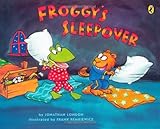Get Ready To Celebrate Diwali, The Festival of Lights
Language
Reading Level
Listen to Article
On Sunday, November 3rd, Hindus, Jains and Sikhs all over the world will celebrate Diwali. Also known as Deepavali, which means row of lights, the ancient celebration is the biggest and most eagerly awaited of all Indian festivals.
The day begins with a visit to the temple for Hindus and Jains and gurudwara for the Sikhs. Following that families and friends get together and celebrate by exchanging gifts and ethnic sweets. Since buying gold jewelry is considered good luck, many women dressed in their finest Indian attire head to the jewelers in the afternoon that is, if they haven't done so already on Dhanteras, which precedes Diwali by two days and is considered by many to be the beginning of the festival.
Once the sun sets, most Indian households are aglow with diyas (small oil lamps) and the skies with colorful fireworks. What makes the celebration fun is that they are not choreographed professional displays. Instead, everyone gets to create his/her own show with their favorite firecrackers. The young ones stick to the sparklers, while the teens and adults prefer the louder, more powerful versions. The commotion continues late into the night until every last firework has exploded.
The reason the day is celebrated varies amongst the different Indian states. For some it's to celebrate the return of Hindu king Rama, wife Sita and brother Laksmana to the ancient kingdom of Ayodhya after spending 14 years exiled in a forest where they encountered and defeated the demon king Ravana. According to the ancient Sanskrit epic Ramayana, the residents of Ayodhya demonstrated their joy by lighting oil lamps to welcome the trio back, beginning an annual ritual that became known as Diwali.
Others believe it signifies the taming of a goddess who after finding it difficult to control demons through conventional warfare went on a rampage that not only killed the evil spirits, but also, threatened to wipe out every living creature on earth. It was only when her husband Lord Shiva intercepted, that she came to her senses and stopped. While the folklore behind the festival may vary it all centers around celebrating the triumph of good over evil!
For some Indians, Diwali also marks the end of the calendar year. On Monday, November 4th, they will celebrate the first day of the year 2070. That is because the Vikram Samvat Hindu calendar which is based on the lunar cycle, is 57 years ahead of the conventional Christian calendar, that the world follows.
For kids that live in India, Diwali is like Christmas, except earlier. They get a week's vacation from school, receive gifts from their parents and other relatives (no Santa Claus however!), wear beautiful clothes, eat great food and get to play with sparklers and fireworks. Sounds like a fun celebration, doesn't it?
Happy Diwali!
Sources: About.com, BBCnews.com, huffingtonpost.com
Cite Article
Geography
Learn Keywords in this Article
137 Comments
- edmodo-wmtyghpdh6about 11 yearscool articl
- lilygirlabout 11 yearsThis is an good Day LoL ?
- Niceguy100about 11 yearsAwsome article!
- BASKETBALLGIRL2about 11 yearsCOOL
- Handsome74about 11 yearsThat would be fun to do.
- livsamabout 11 yearscool ;)
- annwillabout 11 yearsvery nice
- saharsh about 11 yearsI celebrate it
- Jabout 11 yearsLooks fun...
- sushi190about 11 yearsDiwali is awesome. We have a party every year on the first saturday after Diwali. It is so much fun!




